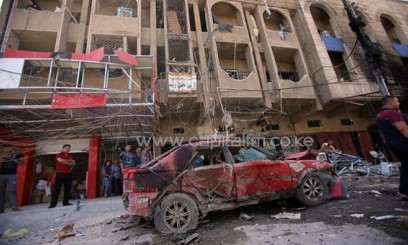The interior ministry, whose public casualty counts are typically markedly lower than those reported by hospital and security officials, said 20 people had died and more than 200 were wounded across the capital.
Iraqi lawmakers and the UN mission to Baghdad, meanwhile, condemned the violence, with the UN’s deputy special envoy noting that a “relentless wave of senseless killing has left thousands dead since April”.
No group immediately claimed responsibility for the attacks, but Sunni militants linked to Al-Qaeda frequently carry out such coordinated attacks targeting Shiite Muslims, whom they regard as apostates.
Wednesday’s attacks were the latest wave of coordinated bombings to hit Baghdad this month.
On August 6, at least eight car bombs and several roadside blasts killed 31 people, while 47 people died in a spate of explosions and gun attacks in the capital on August 10.
Five days later, 24 people died in nine bombings in Baghdad.
Iraq has seen a marked rise in the level of violence since the beginning of the year, coinciding with demonstrations by the country’s Sunni Arab minority against alleged ill treatment at the hands of the Shiite-led government and security forces.
More than 600 people have already been killed so far this month, according to an AFP tally.
Though diplomats and analysts have urged broad reaching moves to tackle Sunni frustrations, which they say give militant groups room to recruit and carry out attacks, Prime Minister Nuri al-Maliki has vowed to press on with an anti-militant campaign led by security forces.
In recent weeks, officials say security forces have dismantled militant training camps and bomb-making sites, arrested hundreds of alleged insurgents and killed dozens of others.
In addition to persistent security problems, though, the government has also failed to provide adequate basic services such as electricity and clean water, and corruption is widespread.
Political squabbling has also paralysed the government, which has passed almost no major legislation in years.











































